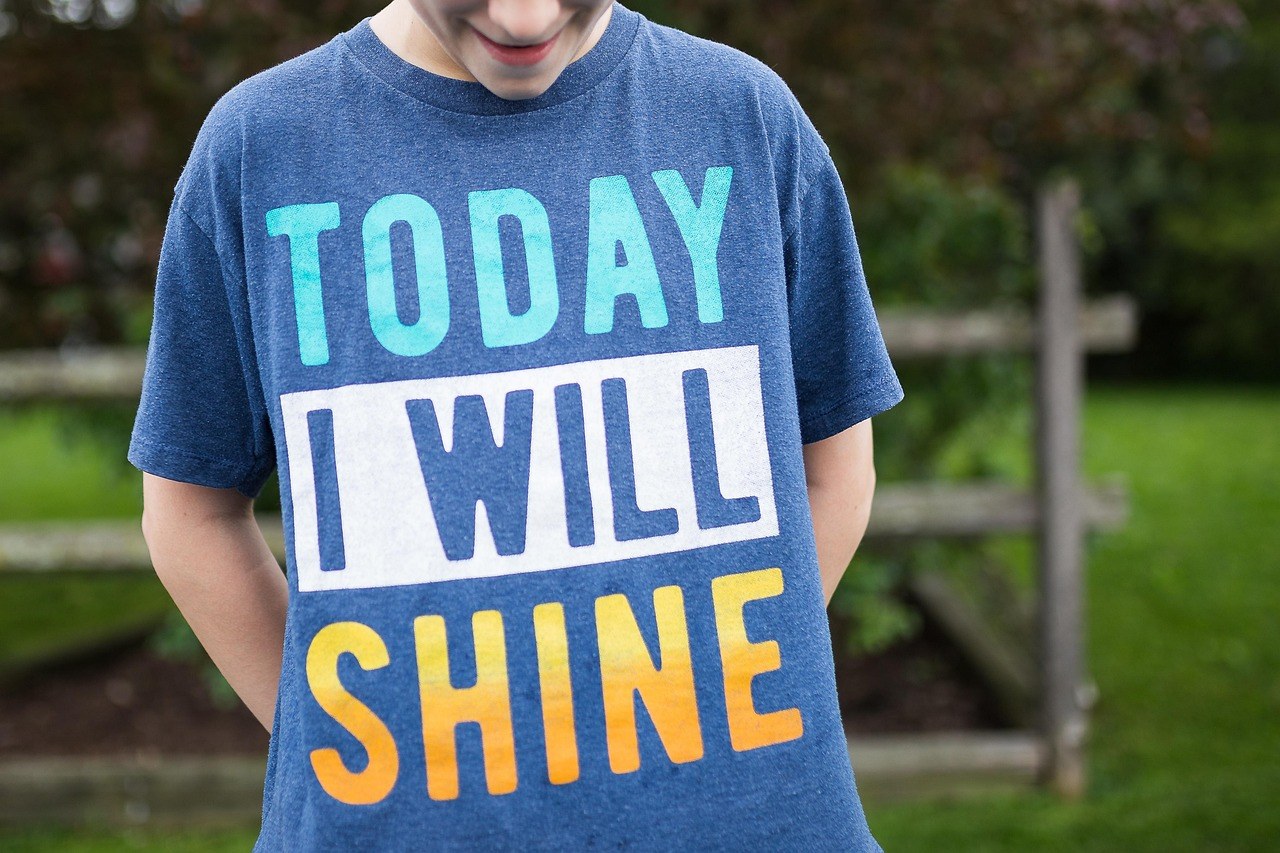You woke up, checked the mirror, and there it was – a telltale bloom on your neck with the confidence of a celebrity on a red carpet. Whether you see it as a souvenir from a great night or as a social curveball you didn’t plan to catch, you’re here for calm, convincing ways to talk about it. Consider this your friendly field guide to navigating the moment with grace. You’ll find practical lines, delivery techniques, and context that help you steer conversations away from awkwardness. Throughout, we’ll lean on clear, believable hickey excuses that feel natural in everyday life – no dramatic monologues required.
What a Love Bite Really Is – and Why People Notice
At its simplest, a hickey is just a bruise created when surface-level blood vessels break and a small pool of blood colors the skin. That’s the boring science; the social meaning is where things get interesting. Some folks read a love bite as a playful signal of affection, while others see it as a distraction that doesn’t mix well with office meetings or family brunch. Because people project different meanings onto the same mark, smart hickey excuses can help you keep conversations comfortable – and your personal life personal.
Believable Cover Stories You Can Deliver with a Straight Face
Below are natural, everyday hickey excuses you can tailor to your voice. Each one comes with a simple framing line so you can say it once and move on. Keep it short, keep it light, and let the topic drift elsewhere.

Bug reaction after time outside. “I was out near the trees and something bit me – it flared up more than I expected.” Works especially well in warm weather and after a weekend outside.
Skin didn’t love a new product. “I tried a different lotion and my skin protested – clearly not a match.” Simple, relatable, and easy to drop into any casual chat.
Cupping marks from a wellness experiment. “I tested cupping for muscle tension and left one spot on too long – lesson learned.” It sounds purposeful, not dramatic.

Training bruise from self-defense practice. “I missed the padding during a drill and caught the edge – nothing major.” Short and plausible.
Nature bump while hiking. “I walked into a low branch – I was watching the trail, not the trees.” Great for outdoor types.
Bag strap rub during a long walk. “My shoulder bag kept rubbing my neck – I carried it way farther than usual.” Specific but not over-detailed.

Stain from costume makeup. “I tested special-effects makeup and it stained a bit – it’ll fade soon.” Timely around autumn, believable year-round for creative folks.
Sports scuffle. “A casual game got a little competitive – I ended up with a bruise instead of a trophy.” Light humor helps.
Paintball welt. “I took a hit in paintball – those pellets have opinions.” Short, punchy, and conversational.
Hair tool mishap. “I grazed my neck with the straightener in a rush – it left a mark.” Everyday beauty routine meets everyday outcome.
DIY neck massage overkill. “I followed a pressure point video and pressed too hard – I overdid it a bit.” Modern, believable, done.
Clumsy corner collision. “I clipped the corner of a shelf – nothing serious, just looks dramatic.” A clean, ordinary accident.
Shaving slip. “I tried a new razor and it wasn’t as gentle as advertised.” A grooming hiccup everyone understands.
Facial suction device imprint. “I tested a pore vacuum and lingered too long in one spot.” The quest for good skin strikes again.
Warm surface contact. “I leaned near a hot pan while multitasking – not my finest moment.” Kitchen credibility without melodrama.
Reaction to detergent or softener. “I switched laundry products and my skin got fussy.” Then add, “I’m switching back.”
Pet-leash tangling. “My dog chased a squirrel and the leash caught my neck for a second.” Cute alibi with motion to match.
Sleep scratch. “I must’ve scratched in my sleep – woke up and spotted it.” The simplest stories are often the most believable.
Old birthmark you rarely notice. “It’s a mark I’ve always had – it just stands out more today.” Delivered calmly, it ends the conversation quickly.
Overzealous game of tag with younger cousins. “We were playing around and I caught a quick bump – kids have no chill.” Light, warm, and harmless.
Viral challenge gone sideways. “I tried a trending move and got clipped – reality beats filters.” Contemporary and casual.
Acupuncture aftermath. “I had a deep session and it left a little spot – totally fine.” Perfect if you already enjoy alternative care.
Fender-bender bruise. “Minor car tap – I’m fine, just got a small mark.” Use gently – it reads serious, so keep it minimal.
Pop-up hail. “I got caught outside in a quick hail burst and one piece tagged me.” Seasonal, but memorable.
Thorny garden moment. “I was trimming roses and a thorn won the round.” Picturesque and plausible.
Rope burn from knot practice. “I was practicing knots and the rope slipped – left a mark.” Sounds hands-on, not contrived.
Marker mayhem from little artists. “My niece turned me into a doodle pad – took scrubbing to get it off.” Adorable chaos sells itself.
Device edge bump. “I bumped my neck on a laptop corner – too many tabs, not enough spatial awareness.” Modern life in one sentence.
Fence scrape during a jog. “I tripped by a fence and caught the edge – keeping score: sidewalk 1, me 0.” Self-deprecating humor softens it.
Stage-combat rehearsal mark. “Practice got a bit too real – fake punch, real bruise.” Theater friends will nod immediately.
Fragrance test gone wrong. “A spritz reacted with my skin – patch tests exist for a reason.” Neat and tidy.
VR immersion incident. “I got wrapped up in VR and clipped myself moving around.” Technology giveth, technology taketh away.
Jar slip skirmish. “A stubborn jar slipped out of my hands and tapped me.” Mundane stories ring true.
Own the moment. “It’s a love bite – I’m fine and not making it a big deal.” Sometimes honesty ends the chatter faster than any cover story.
These lines are simple by design. When you’re choosing among hickey excuses, pick the one that naturally fits your day – then say it once and pivot the conversation. Resist the urge to add extra color; brevity keeps the story believable and forgettable in the best way.
How to Deliver Your Story so People Stop Asking
Even the best hickey excuses need steady delivery. Think of this section as your performance notes – not for theatrics, but for easy credibility.
Rehearse lightly. Say your one-liner out loud once or twice. A smooth cadence beats a complicated script – confidence carries more weight than details.
Keep it casual. Offer a brief explanation and move on. Over-explaining invites follow-up questions you don’t want.
Use steady eye contact. A calm look signals you have nothing to hide – which makes your hickey excuses land without friction.
Stay consistent. Pick one story and stick to it. Consistency closes the loop before rumors can open it.
Deflect with humor. A small joke about your clumsiness or timing can redirect the chat – laughter short-circuits nosiness.
Wait a beat. If someone comments, pause, look mildly surprised, then deliver your line. That moment of composure reads as honesty.
Match the audience. Choose hickey excuses that fit the listener – a VR story for a gamer friend, a gardening story for your aunt with roses.
Read the room. If a face looks skeptical, keep your tone calm and repeat the same short explanation – don’t pile on extra detail.
Recruit a witness. If appropriate, brief a trusted friend so they can casually confirm your story – a simple “Yep, I remember that.”
Plan for follow-ups. Keep one extra sentence in your pocket – something like, “It looked worse yesterday; it’s already fading.” Then switch topics.
Change lanes smoothly. After you answer, transition: “Speaking of the weekend, did you try that new café?” A gentle pivot ends the hickey talk.
Why People Reach for a Cover Story in the First Place
Understanding the social swirl around love bites makes your strategy stronger. When you know why the topic feels touchy, it’s easier to choose hickey excuses that keep things comfortable.
Mixed social messages. Some people treat a love bite as romantic flair; others see it as unprofessional. Hickey excuses protect you from clashing expectations.
Embarrassment and norm-policing. We’re wired to feel awkward when we think we’ve stepped outside a group’s standards – a neat one-liner helps restore equilibrium.
Impression management. We all curate how we’re seen – especially at work, with relatives, or in new social circles. Hickey excuses act as a fast filter for what you’d rather keep private.
Cultural context. Displays of affection land differently around the world – a tame explanation maintains harmony without debate.
Specific relationships. You might prefer to avoid commentary from parents, partners, or friends. A simple story reduces friction.
Element of surprise. No one loves being ambushed by a personal question. Prepared hickey excuses restore your sense of control.
Public-facing roles. Teachers, managers, and anyone with a visible job may prefer to keep attention on the work – not the bruise.
Quiet relationships. New or private connections sometimes benefit from discretion. A quick cover story respects boundaries.
Family dynamics. House rules and generational norms vary – hickey excuses keep dinner peaceful and the conversation off your neckline.
Modern dating tangle. Overlapping situations can lead to misunderstandings. A neutral explanation prevents unnecessary drama.
Personal comfort. Even confident people sometimes feel self-conscious. Hickey excuses offer a low-stress way to get through the day.
Putting It All Together – Your Low-Drama Game Plan
Here’s a clean blueprint you can use anytime a curious eye lands on your neck. First, choose one of the hickey excuses that fits your week – bug reaction, bag strap, hair tool mishap, or a straight-up “I’m fine.” Second, rehearse the single sentence so it sounds as casual as ordering coffee. Third, answer once and pivot – ask a question about their weekend, their project, or their playlist. The mark will fade; your composure will stick around.
Extra Nuance for Tricky Settings
Different rooms call for different tones. At work, keep it brisk and neutral: “Switched detergents; my skin’s sensitive.” With family, keep it wholesome: “The dog tangled the leash and it brushed my neck.” With close friends, pick humor: “VR 1, me 0.” These subtle shifts keep your hickey excuses aligned with the space you’re in – you’re not changing your story, just selecting the most comfortable version for the audience.
Micro-Scripts You Can Use Word-for-Word
Sometimes the best move is to borrow language that’s already balanced and brief. Try these lines – each is a single breath, easy to deliver, and designed to end the topic rather than extend it.
“I tried a new lotion and my skin threw a tantrum – it’s already calming down.”
“I bumped the corner of a shelf while cleaning – looks worse than it feels.”
“Cupping experiment – I left one spot on too long. All good.”
“Paintball welt – I zigged when I should’ve zagged.”
“Straightener nick – mornings are a contact sport.”
“Leash tangle during a dog sprint – he saw a squirrel, I saw stars.”
“VR mishap – immersive, apparently.”
“Honestly, it’s a love bite – I’m not making it a thing.”
How to Keep the Conversation Moving
Once you’ve delivered one of your hickey excuses, the next move is a gentle pivot. Ask something specific – “How did your presentation go?” or “Did you try that recipe you mentioned?” That soft redirect is a social gear shift. If someone circles back, repeat your short line verbatim and pivot again. Consistency plus calm repetition tells people there’s no story to chase.
When Silence Is Golden
Not every comment deserves a response. If someone tosses a teasing remark from across the room, a shrug and a smile may be enough. You can reinforce your boundary with a friendly, “I’m good, thanks,” and change the subject. Hickey excuses work best when you decide they’re needed – sometimes the strongest move is to give none at all.
Choosing the Right Cover Story for You
Match the excuse to your lifestyle so it feels organic. Outdoor enthusiasts can lean on trails, branches, and thorns; beauty lovers can nod to lotions, razors, and styling tools; fitness fans can point to practice drills and weekend matches. If you rarely play sports, don’t pick the paintball line – your friends will raise an eyebrow. The goal is to make your hickey excuses indistinguishable from your normal life – the kind of detail no one remembers five minutes later.
Confidence: The Secret Ingredient
Delivery matters more than content. A steady tone, a half-smile, and relaxed posture do heavy lifting. People mirror energy – if you treat the mark like a non-event, most folks will, too. That’s why hickey excuses are less about inventing drama and more about preventing it. A quiet, confident one-liner keeps the focus on the conversation you actually want to have.
If You Decide to Own It
There’s always the candid option: acknowledge it and move on. “Yep – I’m fine.” It’s direct without being defensive. Choosing honesty doesn’t require telling a story – it just requires a calm tone. The beauty of this route is its simplicity; it respects your privacy and everyone’s time. Remember, your body isn’t a public debate – your response can be brief and complete.
Final Word on Low-Key Damage Control
Life is busy, schedules are jammed, and you don’t owe anyone a saga. Pick one of these hickey excuses, practice once, and let the conversation head somewhere more interesting. Keep the line short, the tone easy, and the pivot ready – by the time the mark fades, the moment will be yesterday’s news.